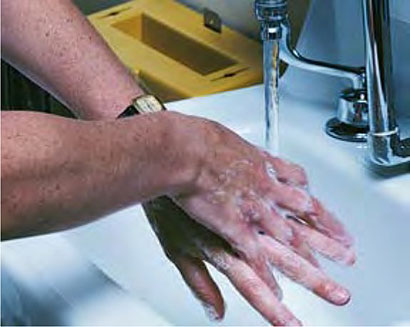

Key Features
Organisations can apply for a share of up to £450k to develop ideas for treating high organic surface water at point of use.
Programme: SBRI
Award: A share of £30k
Opens: 12th Feb 2018
Closes: 25th Apr 2018
The aim of this competition is to fund up to 5 feasibility studies to explore the development of a point-of-use (POU) water treatment system. It must consistently deliver water from high organic surface waters with no risk to human health. It must also be cost effective and low maintenance.
Scotland has more than 10,000 water supplies that serve only one household. It has another 20,000 supplies that serve a population of fewer than 50 people. The performance and capabilities of household drinking water treatment technology vary depending on the quality of the incoming raw water.
Most of these supplies are served by surface waters high in organic matter. There is no reliable household solution on the market for treating this sort of water. Current technology is either too expensive or requires a lot of maintenance.
This competition seeks R&D of innovative solutions for point-of-use water treatment systems. These systems must consistently turn high organic surface waters into drinking water compliant with regulations. The output must pose no risk to human health and be produced in a way that is cost effective and low maintenance.
Recent trials of commercially available systems have shown they require heavy maintenance and have poor reliability. None of the technologies tested performed well under high organic loading.
2 situations have been identified that would benefit from the successful solution:
Systems must be simple, easy for the general public to understand and operate, and be easy to maintain. A good comparison is the level of maintenance required and reliability of a new, good quality gas boiler.
Solutions must:
Ideally solutions will allow remote monitoring and operation.

Applications must have at least 50% of the contract value attributed directly and exclusively to R&D services. R&D can cover solution exploration and design. It can also include prototyping and field testing the product or service. R&D does not include:
Eligibility
To lead a project, you must:
Funding and project details
The competition will be split into 2 phases.
Phase 1: Research and development (R&D) feasibility study contract
Feasibility study for a point-of-use treatment system resulting in:
A total of up to £150k is allocated to phase 1. It is anticipated that the feasibility study R&D contracts will be in the region of up to £30k for each project for up to 6 months.
Phase 2: R&D prototype and testing contracts
Prototype development and testing resulting in installation at the Gorthleck Development Centre.
A total of up to £300k is allocated to phase 2. R&D.
The decision to proceed with phase 2 will depend on the outcomes from phase 1. Only successful applicants from phase 1 will be able to take part in phase 2.
Project types
Projects should focus on 3 elements.